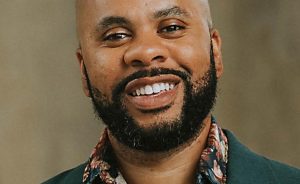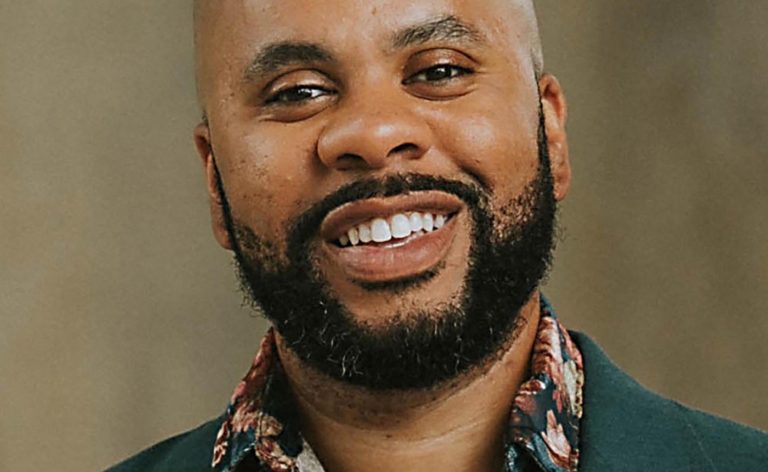By David Bauder and Linley Sanders | Associated Press
NEW YORK — When her husband turns on the television to hear news about the upcoming presidential election, that’s often a signal for Lori Johnson Malveaux to leave the room.
It can get to be too much. Often, she’ll go to a TV in another room to watch a movie on the Hallmark Channel or BET. She craves something comforting and entertaining. And in that, she has company.
While about half of Americans say they are following political news “extremely” or “very” closely, about 6 in 10 say they need to limit how much information they consume about the government and politics to avoid feeling overloaded or fatigued, according to a new survey from the Associated Press-NORC Center for Public Affairs Research and USAFacts.
Make no mistake: Malveaux plans to vote. She always does. “I just get to the point where I don’t want to hear the rhetoric,” she said.
The 54-year-old Democrat said she’s most bothered when she hears people on the news telling her that something she saw with her own eyes — like the Jan. 6, 2021, attack on the U.S. Capitol — didn’t really happen.
“I feel like I’m being gaslit. That’s the way to put it,” she said.
Sometimes it feels like ‘a bombardment’
Caleb Pack, 23, a Republican from Ardmore, Oklahoma, who works in IT, tries to keep informed through the news feeds on his phone, which is stocked with a variety of sources, including CNN, Fox News, The Wall Street Journal and The Associated Press.
Yet sometimes, Pack says, it seems like a bombardment.
“It’s good to know what’s going on, but both sides are pulling a little bit extreme,” he said. “It just feels like it’s a conversation piece everywhere, and it’s hard to escape it.”
Media fatigue isn’t a new phenomenon. A Pew Research Center survey conducted in late 2019 found roughly two in three Americans felt worn out by the amount of news there is, about the same as in a poll taken in early 2018. During the 2016 presidential campaign, about 6 in 10 people felt overloaded by campaign news.
But it can be particularly acute with news related to politics. The AP-NORC/USAFacts poll found that half of Americans feel a need to limit their consumption of information related to crime or overseas conflicts, while only about 4 in 10 are limiting news about the economy and jobs.
It’s easy to understand, with television outlets like CNN, Fox News Channel and MSNBC full of political talk and a wide array of political news online, sometimes complicated by disinformation.
“There’s a glut of information,” said Richard Coffin, director of research and advocacy for USAFacts, “and people are having a hard time figuring out what is true or not.”
Women are more likely to feel they need to limit media
In the AP-NORC poll, about 6 in 10 men said they follow news about elections and politics at least “very” closely, compared to about half of women. For all types of news, not just politics, women are more likely than men to report the need to limit their media consumption, the survey found.
White adults are also more likely than Black or Hispanic adults to say they need to limit media consumption on politics, the poll found.
Related Articles
Letters: Newsom caves | Pleasanton schools | Homeless vets | Afghanistan blame | Inaccurate portrait | Harris unfit
Linda Deutsch, AP trial writer who had front row to courtroom history, dies at 80
Skelton: Newsom and lawmakers bow to Google, killing help for news industry
Member of British journalist team dies after Russian missile hits hotel in eastern Ukraine
Google cuts controversial funding deal to support California news media, taxpayers also on the hook
Kaleb Aravzo, 19, a Democrat, gets a baseline of news by listening to National Public Radio in the morning at home in Logan, Utah. Too much politics, particularly when he’s on social media sites like TikTok and Instagram, can trigger anxiety and depression.
“If it pops up on my page when I’m on social media,” he said, “I’ll just scroll past it.”
Sanders reported from Washington. David Bauder writes about media for the AP. Follow him at http://x.com/dbauder.
The AP poll of 1,019 adults was conducted July 29-August 8, 2024, using a sample drawn from NORC’s probability-based AmeriSpeak Panel, which is designed to be representative of the U.S. population. The margin of sampling error for all respondents is plus or minus 4.0 percentage points.












